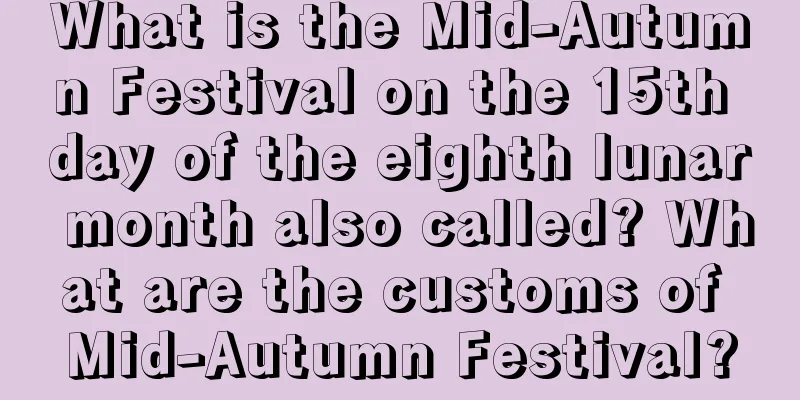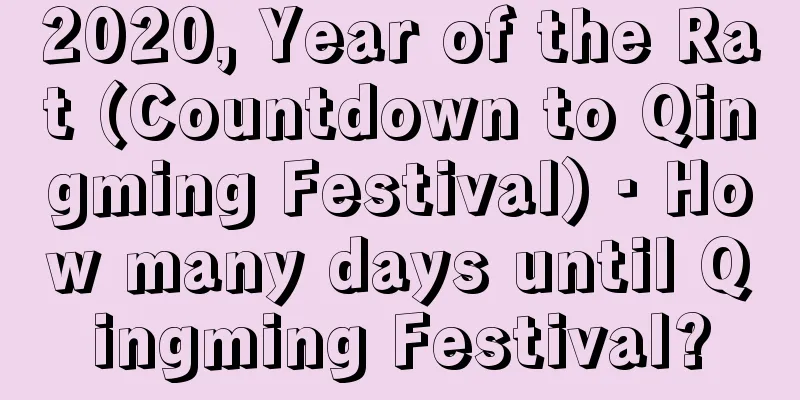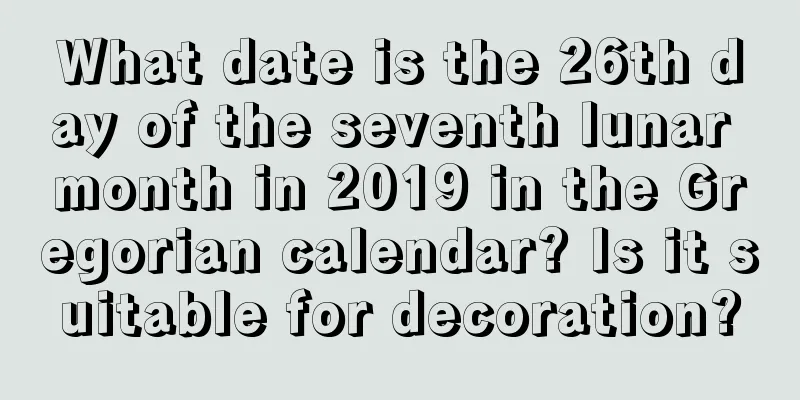Is it a good day to get married on November 25th of the lunar calendar in 2020?

Weddings, both in ancient and modern times, in China and abroad, are considered the most important rite of passage in life. In China, we hold grand weddings, and choosing an auspicious day is crucial. The eleventh month of the lunar calendar heralds the arrival of the new year. The fortune of each day is different. Please follow Mr. Shui Mo to take a look.Is it a good day to get married on November 25th of the lunar calendar in 2020?Lunar calendar November 25, 2021 Gregorian calendar January 8, 2021 Friday Capricorn conflict (Gengxu) Dog evil south【Today’s lunar calendar is suitable】 Relocation, groundbreaking, bed setting, livestock placement, burial, hanging plaques, sacrifice, dismantling, coffining, cremation, consecration, groundbreaking [Today’s taboos in the almanac] Getting married, buying property, opening a business, building stoves, cutting wood, making beams, evil spirits to avoid: dead air, heavenly prison, dark generals, ruin, and abandonment. Lucky spirits to follow: moon void, three-way combination, sun, time shadow, heaven warehouse, sacred heart, star, moon void. God of wealth: Southwest. God of fortune: Northwest. God of wealth: Southwest. From the old almanac we can learn that the 25th day of the eleventh lunar month is not a good day for marriage, so this day is not suitable for getting married. Ancient wedding ceremonyThe ancestors of the Chinese nation, with the Han nationality as the main body, like all other nations in the world, experienced the stages of promiscuous marriage and group marriage in the primitive period. After entering civilized society, they basically adopted the monogamous marriage form. The earliest form of wedding began around the end of primitive society. It gradually evolved from the engagement practice of "using paired deerskins as a gift" which was said to have begun in the era of Fuxi, to the "welcoming the bride in the hall" in the Xia and Shang dynasties, and then to the complete "six rituals" in the Zhou Dynasty, which laid the foundation for my country's traditional wedding. With the development of generations, various wedding ceremonies have become more complicated and lively. Generally speaking, my country's traditional wedding is divided into three stages: pre-wedding ceremony, wedding ceremony and post-wedding ceremony.Pre-wedding ceremonies are ceremonies held during the planning and preparation stages of a marriage. In the pre-Qin period, there were five types of rituals, including Nacai, Wenming, Naji, Nazheng and Qingqi (plus the welcoming ceremony at the wedding, the so-called "six rituals"). Later generations gradually evolved into rituals such as urging the bride to get ready, sending the bride's makeup and setting up the room. In ancient feudal society, marriage was determined by "parents' orders and matchmaker's words". Therefore, all pre-wedding ceremonies, including a series of links from choosing a spouse to preparing for the formal wedding, were almost all arranged by the parents of both parties, and the parties to the actual marriage were excluded. Because men have a higher social status than women, men are often the ones who take the initiative in proposing marriage. When the boy's parents want to find a wife for their son, they first ask a matchmaker to propose marriage to the girl's family (called "asking for the marriage"). If the girl's family accepts the marriage proposal, they will begin a series of ceremonies such as accepting the proposal and asking for the girl's name. Nacai: It is the first step for a man to formally propose to a woman. On the day agreed by both parties to perform the "Nacai" ceremony, the matchmaker sent by the man's family holds a live goose as a gift (initially, live geese were used as a gift because geese are migratory birds that fly south in autumn and return north in spring, coming and going at regular times without breaking their promises, which is a symbol of the man and woman's unwavering faith; and the geese fly in a line and stay in a queue, to show that marriage must be based on order of seniority and cannot be exceeded. Later, lambs, white geese, acacia, glue and lacquer were also used as gifts), and comes to the gate of the woman's house and says to the woman's rejector (the person who assists with the ceremony): "Your master is very kind and has awarded XX (son-in-law's name) a wife. XX (son-in-law's father or brother) allows me to ask your master to hold a ceremony to select a young lady from your family according to the rules left by the ancestors." After receiving the notification, the woman's host personally went out to greet him. After the host and guest bowed to each other, the matchmaker again expressed to the hostess his intention to perform the Nacai ceremony. The host responded by accepting the live goose and showing some modesty. When the matchmaker saw that the marriage had been formally approved by the girl's parents, he took his leave and went back to report. Urging the make-up to be sent and setting up the room: these three rituals were not recorded in the pre-Qin literature and were developed by later generations in the evolution of weddings. "Rubbing for makeup" is a ceremony where the man's family sends someone with gifts to urge the woman's family to prepare makeup for the bride as soon as possible. In the Song Dynasty, three days before the wedding, the man's family would send a flower bun, a gold-plated veil, a flower fan and other items to the woman's family. The woman's family would respond with a gold and silver double chastity, a silk-patterned headdress, a green robe, boots and other items. Sending the dowry is a ceremony in which the bride's family sends someone to deliver the dowry to the groom's family a few days before the wedding. The dowry is often packed in boxes and baskets. Some families, in order to show off their dowry, spread out the dowry on a square table one by one, and then arrange it in a column and send it to the man's house in a grand manner. The dowry usually includes boxes, bedding, jewelry, clothes, silk, four treasures of the study, gold and silver utensils, etc., and there are also fields, houses, shops and pawnshops as dowry. In Zhejiang area, there is a kind of dowry called "descendants barrel" (a large barrel with a large lid, used when the bride gives birth). The barrel is filled with red eggs and auspicious fruits, which is called "sending children" and is a blessing. In the Shaoxing area, people also give "daughter wine" as a dowry. That is, when the daughter is one month old or a few years old, several jars of wine are brewed and buried underground. On the day of the daughter's wedding, they are taken out and sent to the man's family as a dowry gift. The ceremony of setting up the new house is when the bride's family sends someone to the groom's family to prepare the new house, which is sometimes done at the same time as sending the make-up. In the Song Dynasty, the day before the wedding, the bride's family would send people to the bridal chamber to lay out curtains, bedding and other utensils for the room, and also prepare gifts to warm the room. Then a trusted woman or a maid from the wedding ceremony will be appointed to guard the room, and no outsiders are allowed to enter, to wait for the newlyweds. The person who runs the shop must be a "lucky woman" with both good fortune and longevity and a wealthy family, in order to bring good luck. This custom is still popular in some places today. Welcoming the bride: It is the ceremony in which the groom goes to the bride's home to marry her. It is also the most elaborate and grand ceremony in ancient and modern weddings. According to the "Book of Rites. Wedding of Scholars", on the evening of the wedding day, the bride put on her wedding dress - a pure silk dress with light red lace, and a "ci" (a braided wig) on her head. She stood facing south in the room, with the nanny standing on her right, and the bride's female attendant wearing a white and black coat standing behind her. When the groom, wearing a suit, leads the wedding procession including the ink carriage (for the groom), the colorful carriage (for the bride, with curtains), the carriages and servants to the gate of the bride's house, the host of the bride's family comes out to greet them in person. After some greetings, both parties come to the hall. After the groom performs the Ji Li (the most serious kneeling ceremony in ancient times, which requires bowing to the ground for a long time) to his father-in-law, the bride walks out of the room to her father on the east steps. Her father warns her, "In the future, you must always be careful, respectful and cautious. Don't go against the wishes of your parents-in-law." At the same time, he gives her a piece of clothing as a token of the warning. Then, the bride came to her mother on the west steps. Her mother tied a belt around her waist and put a scarf on her. Then she admonished her: "Be diligent and respectful, and complete the housework your parents-in-law ask you to do." Afterwards, the bride followed the groom down the hall to the front door. The bride put on a dust-proof coat and got on the float, and took the driving belt from the groom. Then, the groom drove the float forward, and after the wheels turned three weeks, the groom handed the car to the driver and went away in the ink carriage, because he had to go to his home to welcome his bride. The custom of welcoming the bride to the bride-in-law has been passed down to later generations. The bride is usually picked up in a sedan chair, wedding car, or colorful boat. The bride's wedding dress is usually a phoenix robe and phoenix crown embroidered with dragon and phoenix patterns and colorful decorations, with silk tassels hanging down to cover her face. |
<<: Can I move on the seventh day of the eleventh lunar month in 2020?
Recommend
Is September 16th of the lunar calendar in the Year of the Rat 2020 a suitable day to pray?
Is September 16th of the lunar calendar in the Yea...
Is the 29th day of the third lunar month in 2018 a suitable date to burn incense and pray?
Introduction: In our country’s traditional culture...
Can I burn incense and pray for blessings on the day before the beginning of winter on October 11, 2019 in the lunar calendar?
The weather in the tenth month of the lunar calend...
Is it a good thing to be born on the Autumnal Equinox on 9/23? Good or bad fortune for people born on the autumnal equinox
According to the lunar calendar, the Autumnal Equi...
Is May 11, Father's Day 2021 a good date? Is this day suitable for caesarean section?
People believe that the fifth month of the lunar c...
What to eat and what not to eat on the first day of the Lunar New Year in 2019, analysis of the customs on the first day of the Lunar New Year!
Introduction: The first day of the first lunar mon...
What are the taboos during the heavy snow in 2018? What should we eat during the heavy snow season?
Heavy Snow is the 21st solar term in the 24 solar ...
Is it possible to travel (far away) on the sixth day of the twelfth lunar month in 2017?
Many people like to check the almanac before doing...
What is the fate of a baby boy born on the second day of the second lunar month in 2019?
What is the fate of a baby boy born on the second ...
Is it suitable to get a marriage certificate the day before the Ghost Festival in 2019? What is the significance of releasing river lanterns during Ghost Festival?
Introduction: Getting a marriage certificate is al...
What are the taboos when the Dragon Raises its Head on February 2? What can we do and what can’t we do?
China is a traditional country, so in life it is v...
Is the fourth solar term on July 14, the Year of the Rat in 2020, a good day to start renovations?
Is the fourth solar term on July 14, the Year of t...
Can I move house on the first day of September in the lunar calendar in 2017? Is it a good time to move into a new home?
The falling leaves indicate the beginning of autu...
When is the exact time of Lidong in 2017? What are the climatic characteristics of the Beginning of Winter?
With the passing of the Frost Descent solar term, ...
Why is there Xiaoman but no Daman among the 24 solar terms? What does Xiaoman represent?
Introduction: Xiaoman is one of the 24 solar terms...









